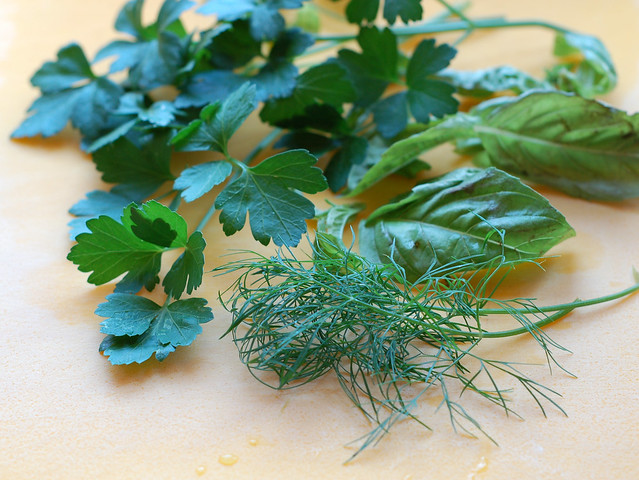
After that long,frigd winter, I'm particularly grateful for all the bright, fresh flavors popping in my garden right now. It's luxurious to walk outside to gather a few sprigs of dill for my morning eggs, some basil leaves for garlic bread, a handful of cilantro to garnish a stir-fry or a few fuzzy leaves of apple mint to add to a cucumber-yogurt sauce.
To make these lovely flavors last beyond the summer, I rely primarily on the freezer.
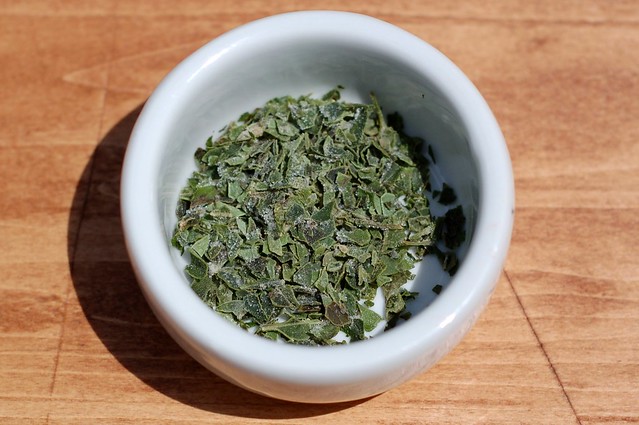
I like to freeze chopped, fresh dill, parsley, cilantro and basil as they hit their stride.
It's easy- just rinse and dry them, take the leaves off the stem, chop coarsely, mix with a little olive oil and fill an ice cube tray with the bright green paste. Once they've frozen fully, pop the fresh herb cubes out and store them in a heavy duty freezer bag for up to a year. But don't forget to label the bag - it can be difficult to tell which green thing is in there once you've got a shelf full of them.
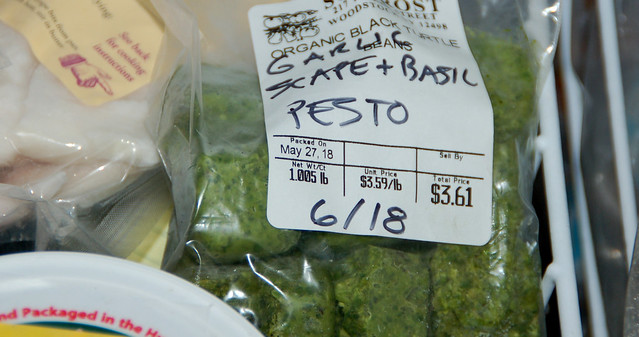
I also like to make big batches of pesto - both regular and garlic scape pesto - to freeze for the year ahead. All you have to do is toss a couple of these little, green bricks into a pot of hot, buttered pasta or a pan of polenta or risotto and you've got an instant, summer-infused treat. The only difference from the herbs above is that I sometimes opt to freeze the pesto in larger portions in these great Beaba silicone trays I bought to freeze baby food for our first son 10 years ago. We're way past that stage now but still use them all the time.
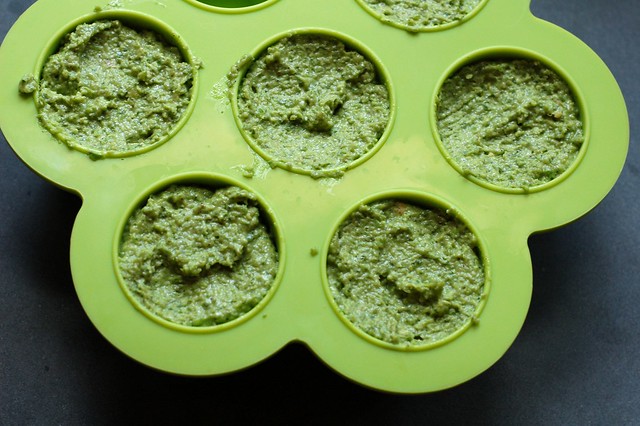
My friend, Liza recently told me she freezes her homemade chimichurri sauce -a great idea! So I made a big batch this morning with our cilantro, parsley and oregano and froze half of it.
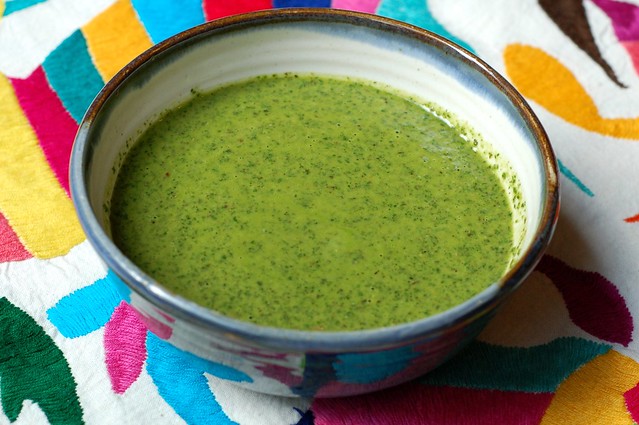
Once tomato season arrives, I will roast them with tons of of thyme, basil, oregano and rosemary and freeze them in quart bags. One thing I love about this technique is that you can use herbs that are already flowering and you don't even need to remove the stems.

My buddy Liza also gave me the idea of making sofrito - the base for many Spanish and Caribbean dishes - and freezing it. Check out Nourished Kitchen's recipe for Spanish-style sofrito here - this one, which is cooked first, includes tomatoes rather than peppers and features Mediterranean herbs- rosemary and thyme.
Or try Serious Eats Puerto Rican style sofrito which is raw and features peppers and culantro (you can substitute cilantro). Liza also adds a little oil to the batch she plans to freeze so she can just pop a cube into the pan and get cooking.
Once pepper and tomato season rolls around, I plan to make both kinds and freeze them.
Although the freezer is my favorite, I also dry fresh sage, mint, rosemary, oregano and summer savory. You just rinse the herbs, dry them thoroughly then hang in a dry, covered location that is out of direct sunlight, has good ventilation and no mold issues. Make sure not to overfill your bundles or hang them too close to each other - you want the air to reach everywhere.
Depending on the weather conditions and the herbs you've chosen, it can take up to two weeks for them to dry out fully--you're looking for a crispy crunch when you crumble them between your fingers. If its been rainy out, I'll pop them into the food dehydrator for an hour or so to finish them off. Once they're bone dry, I crumble them into a Mason jar, cap them and store in my cool, dark, dry pantry.
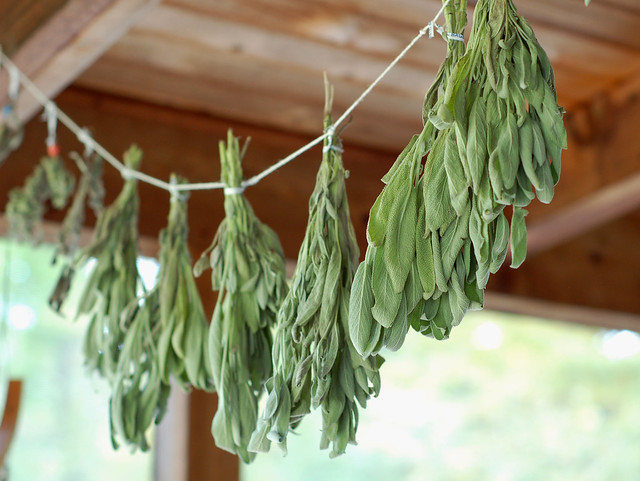
There is little I find as satisfying as filling my freezer and pantry with delicious things to eat. Primal urge to survive the winter in style - ✔.
You might also like:





No comments:
Post a Comment